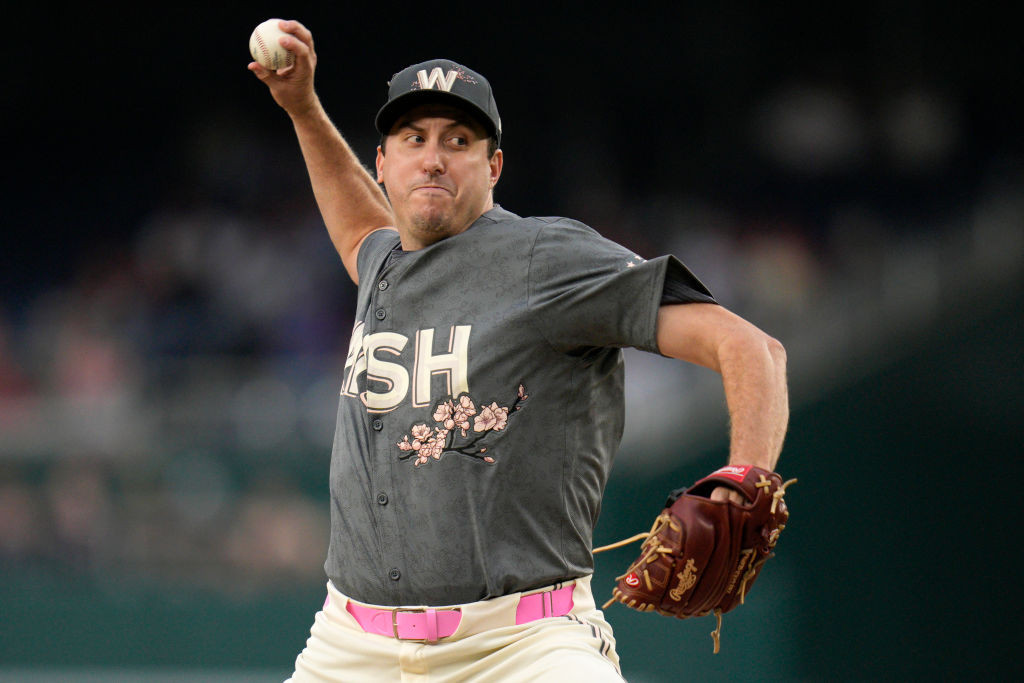Most of the attention this time of year – and, really, most of the offseason – is on big names. Sluggers. Starting pitchers. Free agents seeking multi-year deals, hopefully helping transform franchises in the process.
But there’s never been a Hot Stove League that ultimately wasn’t filled with dozens of relievers joining new clubs. And very often, those seemingly lower-profile moves prove to be just as important as the big-ticket ones.
The Nationals almost always are involved in this market, and there’s every reason to believe they once again will be involved this winter. (Or, perhaps, this spring.)
Mike Rizzo added a host of experienced relievers prior to the 2024 season, and many of those guys were signed not in November, December or January, but rather in February, even after pitchers and catchers reported for camp. Only one bullpen arm was signed prior to Feb. 1: Dylan Floro, who also got the only major league contract of the eventual bunch, for a modest $2.25 million.
Then came a flurry of minor league signings as camp was beginning. Richard Bleier and Robert Gsellman on Feb. 2. Luis Perdomo on Feb. 8. Jacob Barnes on Feb. 16. Derek Law on Feb. 22. Matt Barnes on Feb. 27.
In the end, Floro, Law and Matt Barnes made the Opening Day roster. Then Jacob Barnes joined the group on April 23, with Matt Barnes designated for assignment May 7. The other three became important contributors within the Nats bullpen, with Law and Jacob Barnes surviving the full season and Floro pitching well enough to be coveted by the Diamondbacks at the trade deadline.
The Nationals surprisingly survived the July trades of Floro and Hunter Harvey and continued to get quality performances out of their remaining relievers the rest of the way. But it stands to reason Rizzo will be looking to bolster that unit before Opening Day, with a particular emphasis on adding an experienced arm who could take over the eighth inning role and potentially replace Kyle Finnegan as closer if needed along the way.
There are a number of current free agents who would fit that description, some of them costing more than others. The list includes left-handers Tanner Scott and Aroldis Chapman, right-handers Jeff Hoffman, David Robertson, Clay Holmes, Kenley Jansen, Chris Martin, Carlos Estevez and Blake Treinen.
At least some of those relievers are going to be seeking out teams that can guarantee them the ninth inning, not the eighth inning. But some of them may be less wedded to the closer’s role at this point. And if he really covets someone with proven closing experience, Rizzo has shown a willingness in the past to sign a big name and bump an already established closer into the setup role (sometimes with mixed results, it should be noted).
There are countless more free agent relievers available this winter, too many to name. And it’s a good bet at least one or two of them end up in West Palm Beach, perhaps on minor league deals with an opportunity to make the club.
It’s instructive to remember how often the relievers who perform best for the Nationals over the course of the season were ones who didn’t generate much attention at the time of their acquisitions. Harvey (waiver claim), Law (minor league deal after getting non-tendered), Carl Edwards Jr. (minor league deal) and Erasmo Ramirez (minor league deal) all produced well beyond their minimal salaries would have suggested, while others who commanded good money (Brad Hand, Will Harris, Trevor Rosenthal) turned into busts.
It's a fickle business, with year-to-year performances often fluctuating wildly. But you can’t win without a good bullpen. And while they have reason to like a lot of the pieces they already have in place, there’s every reason to believe the Nationals will be looking to supplement their relief corps in the coming months.
By accepting you will be accessing a service provided by a third-party external to https://www.masnsports.com/





